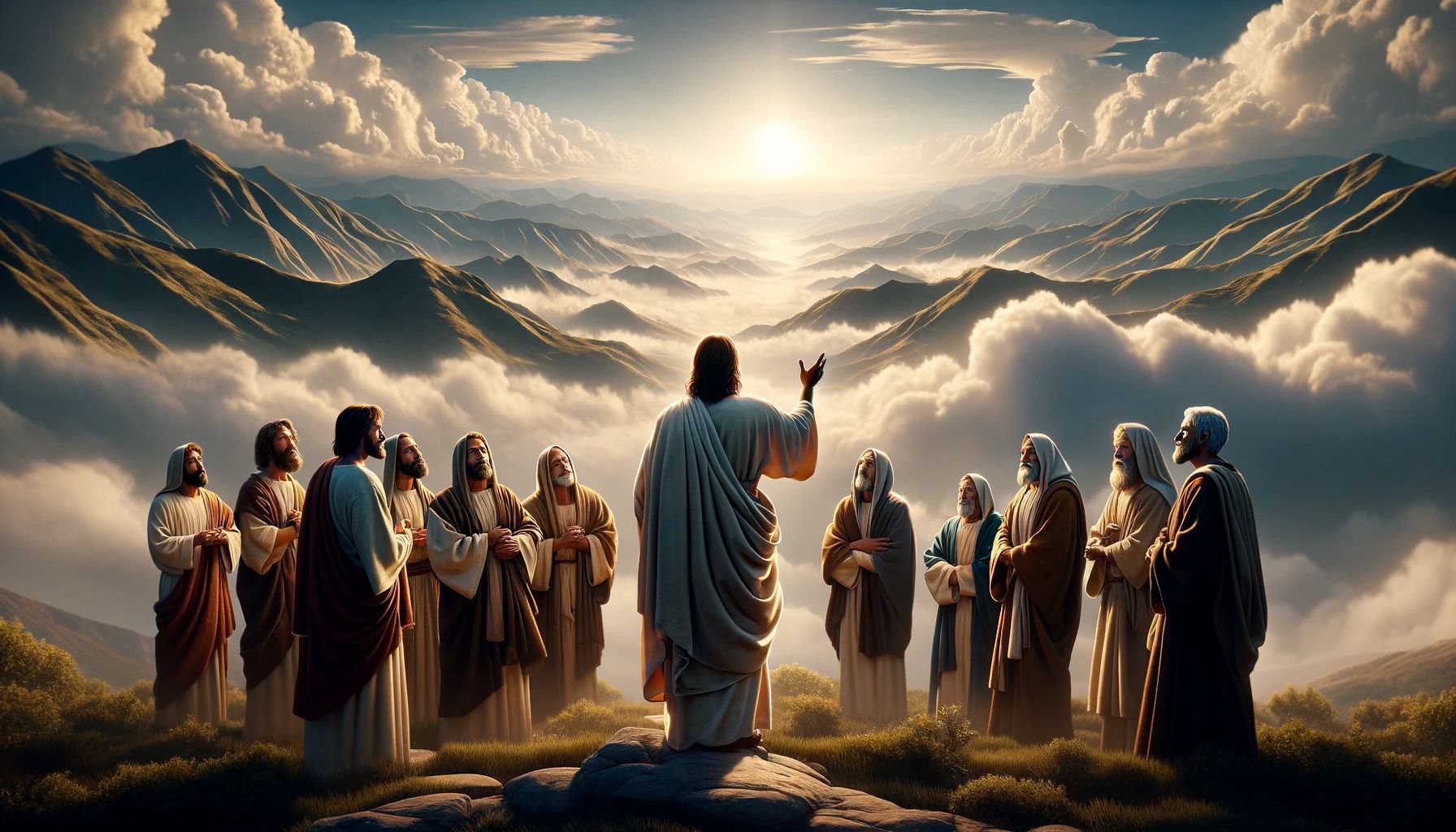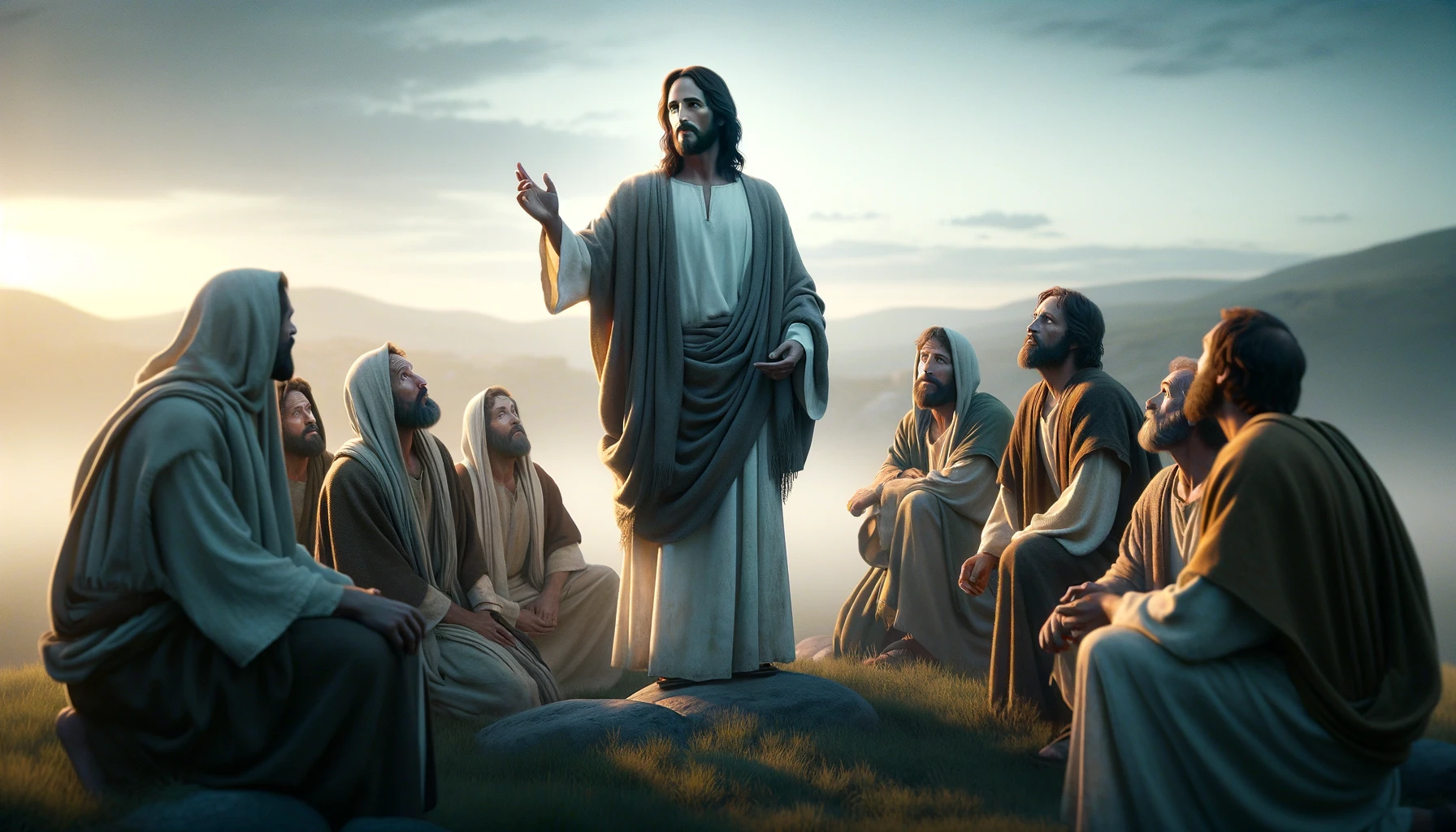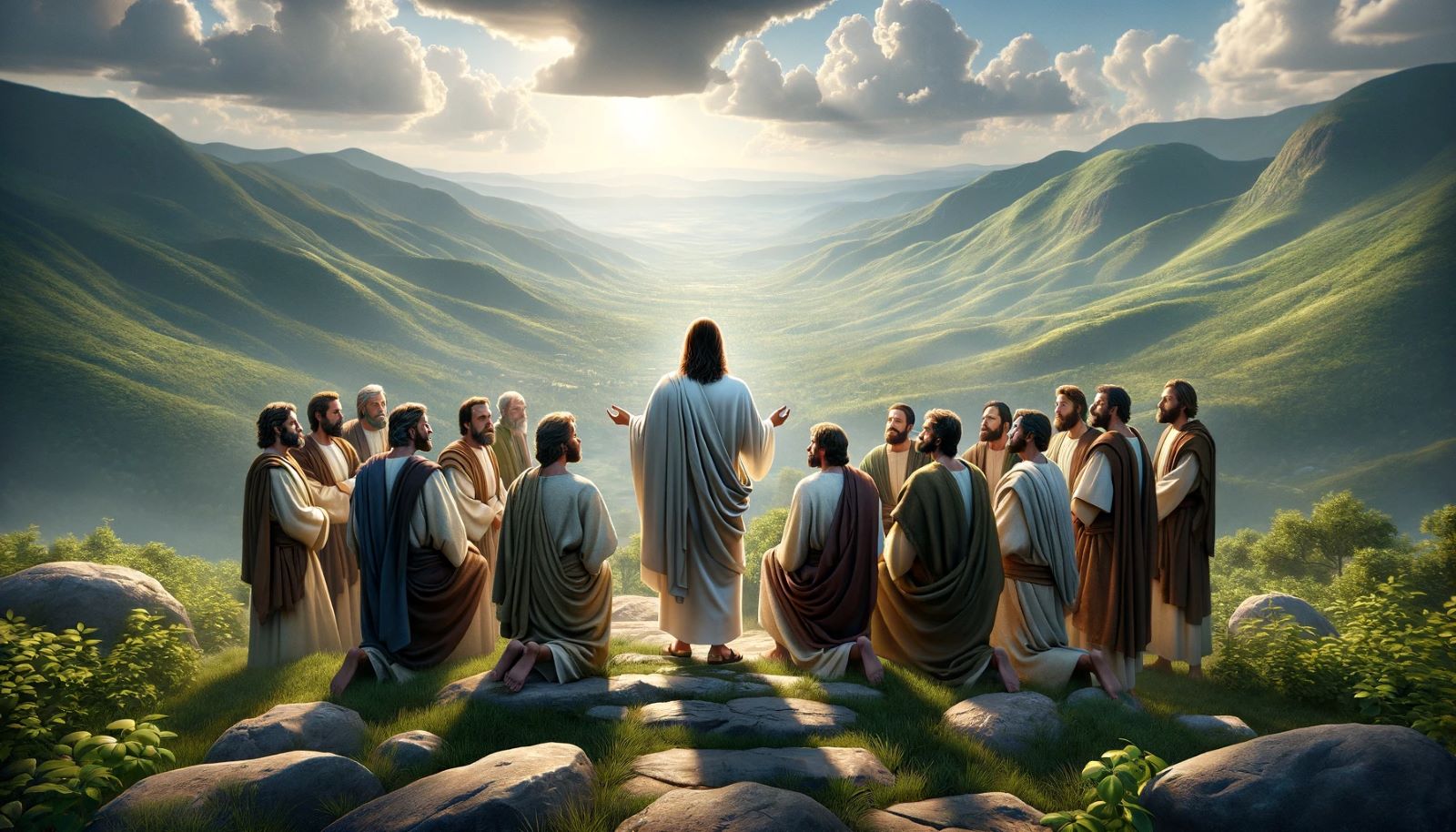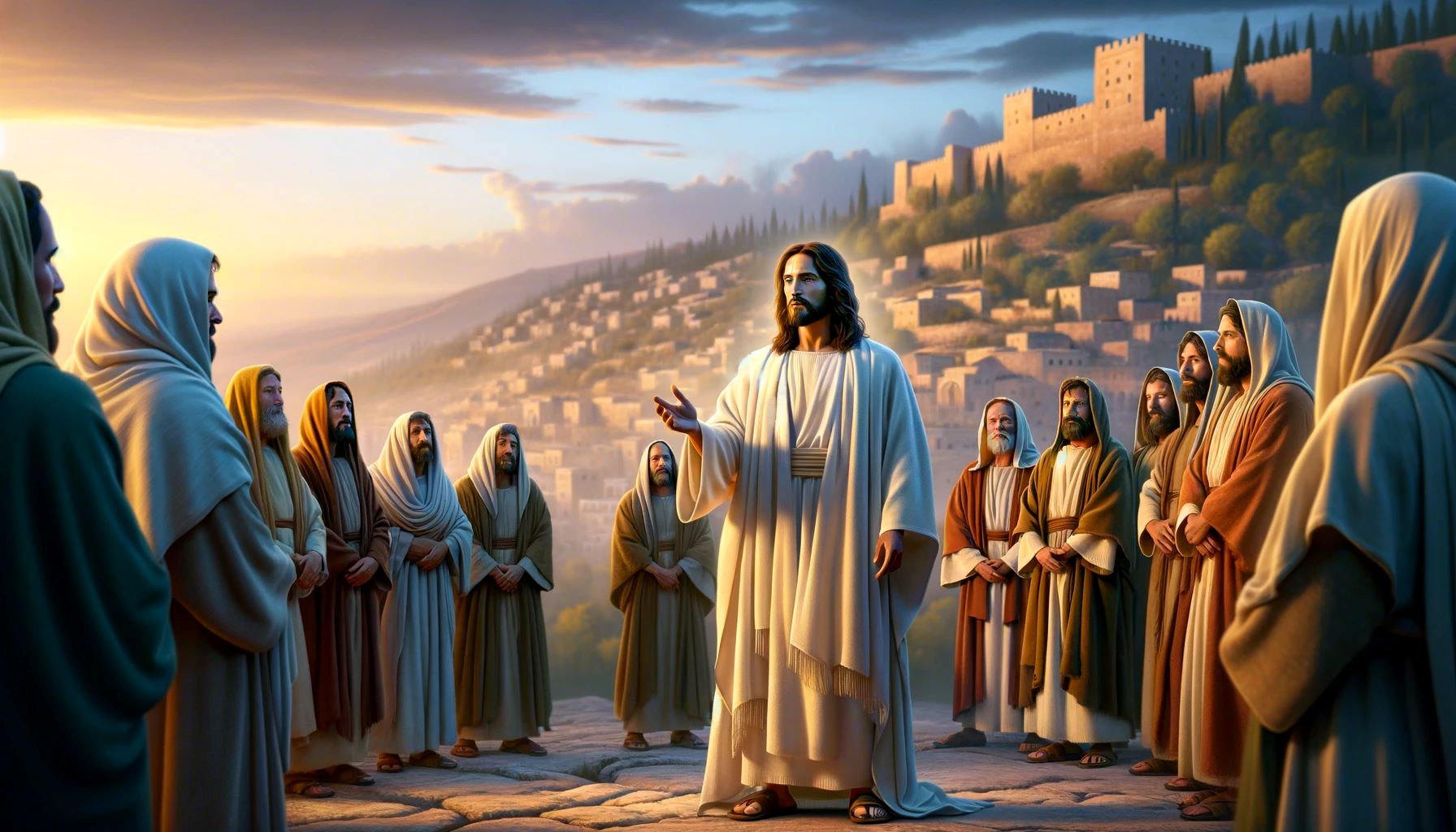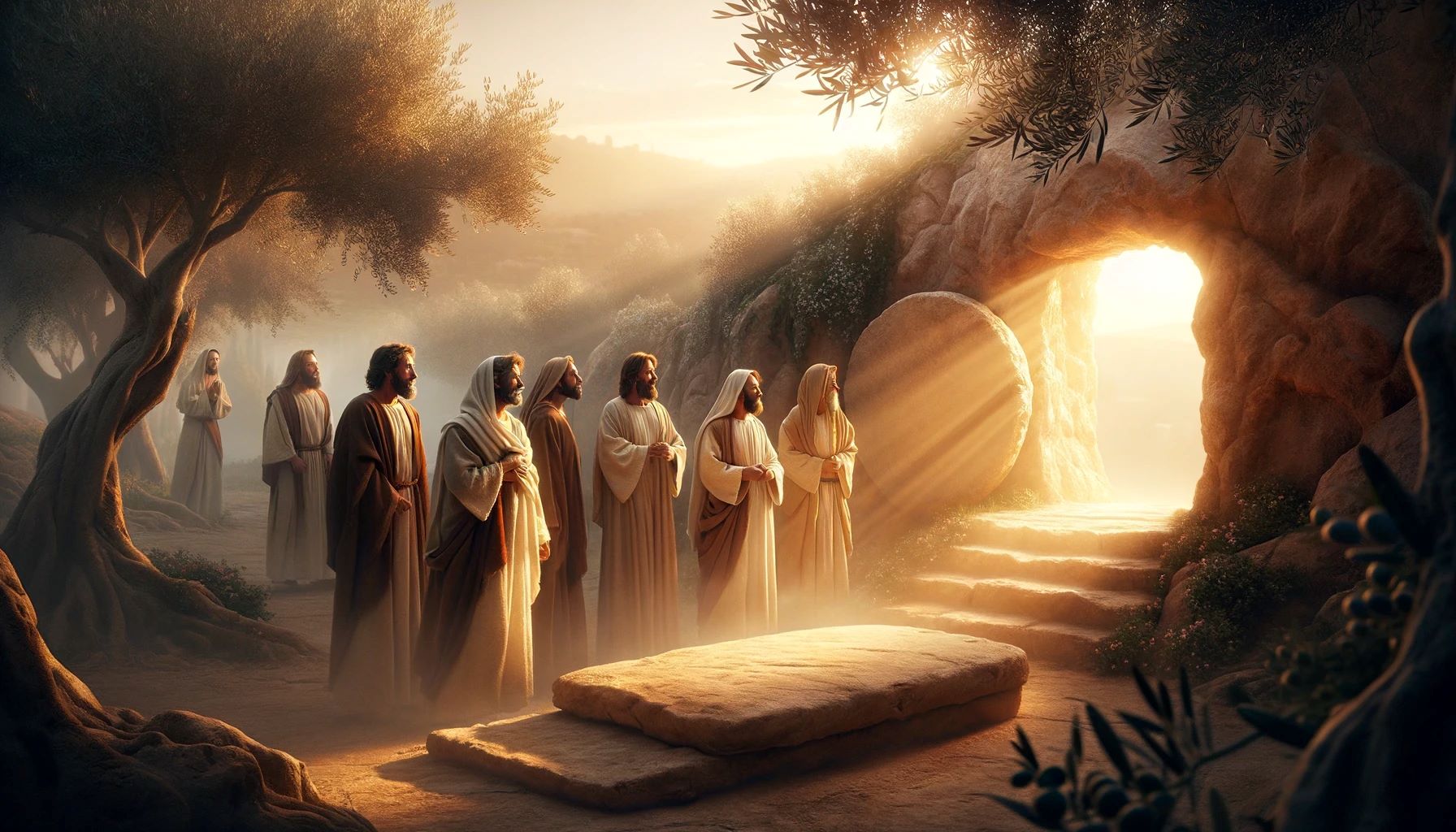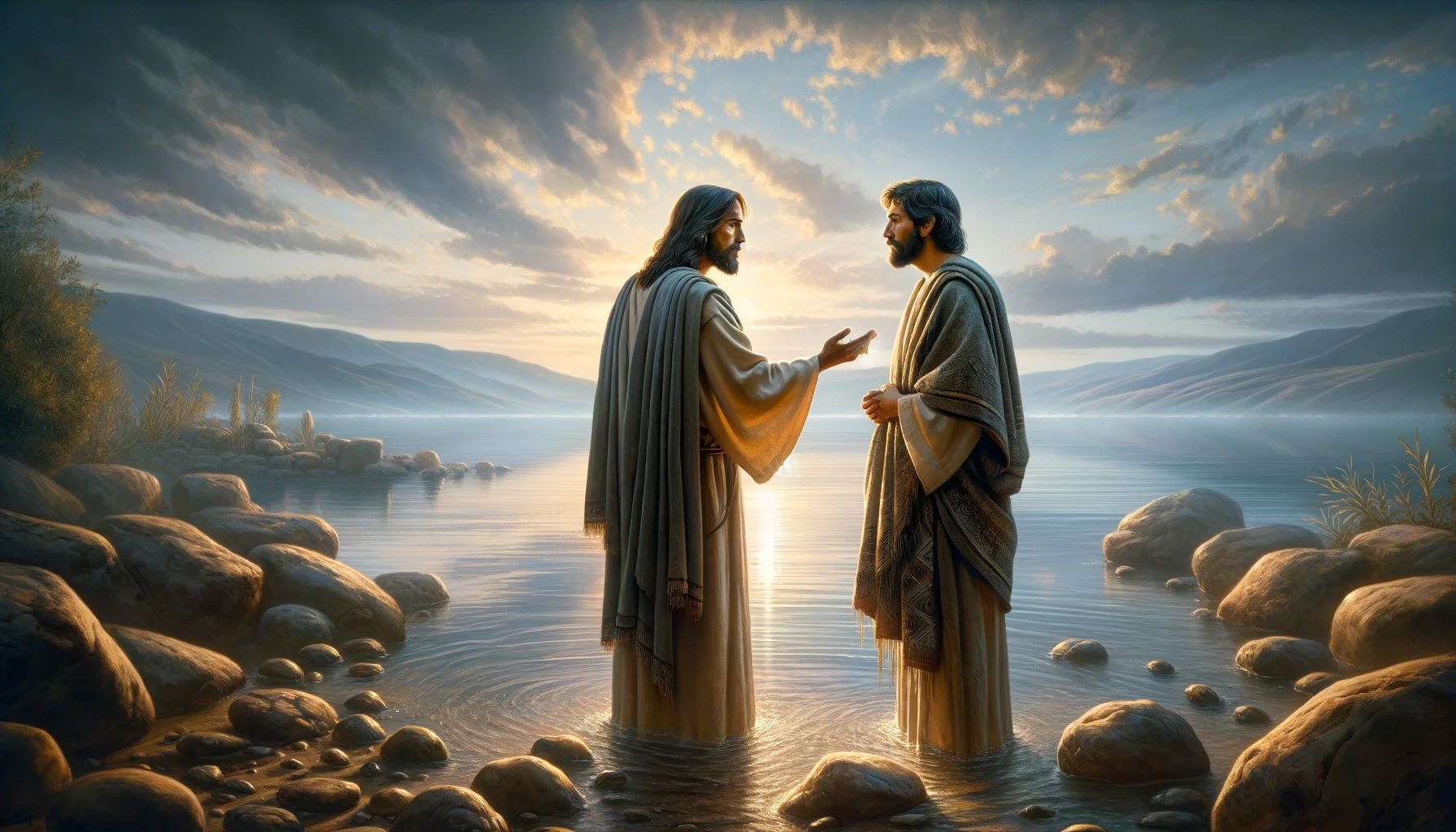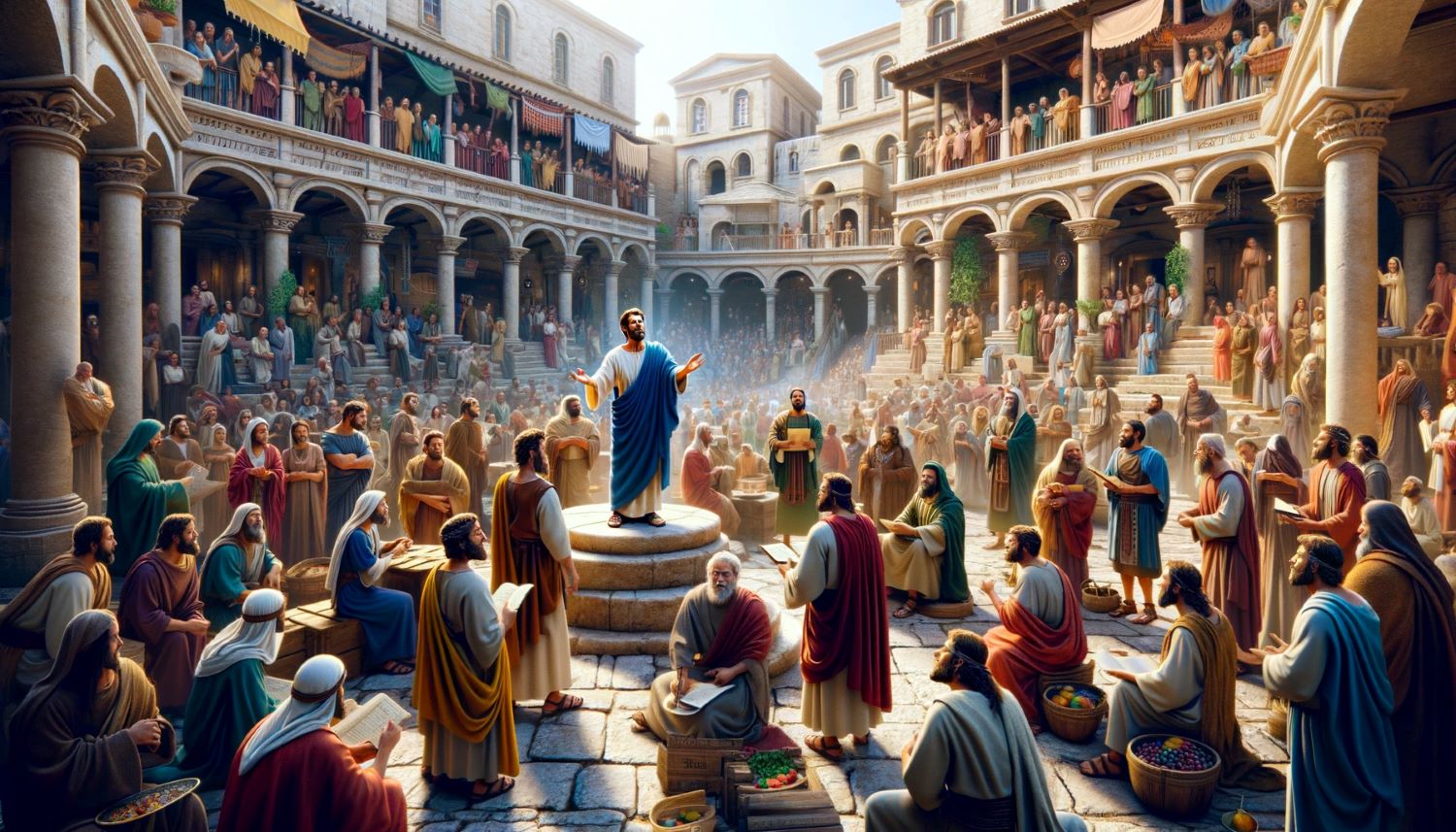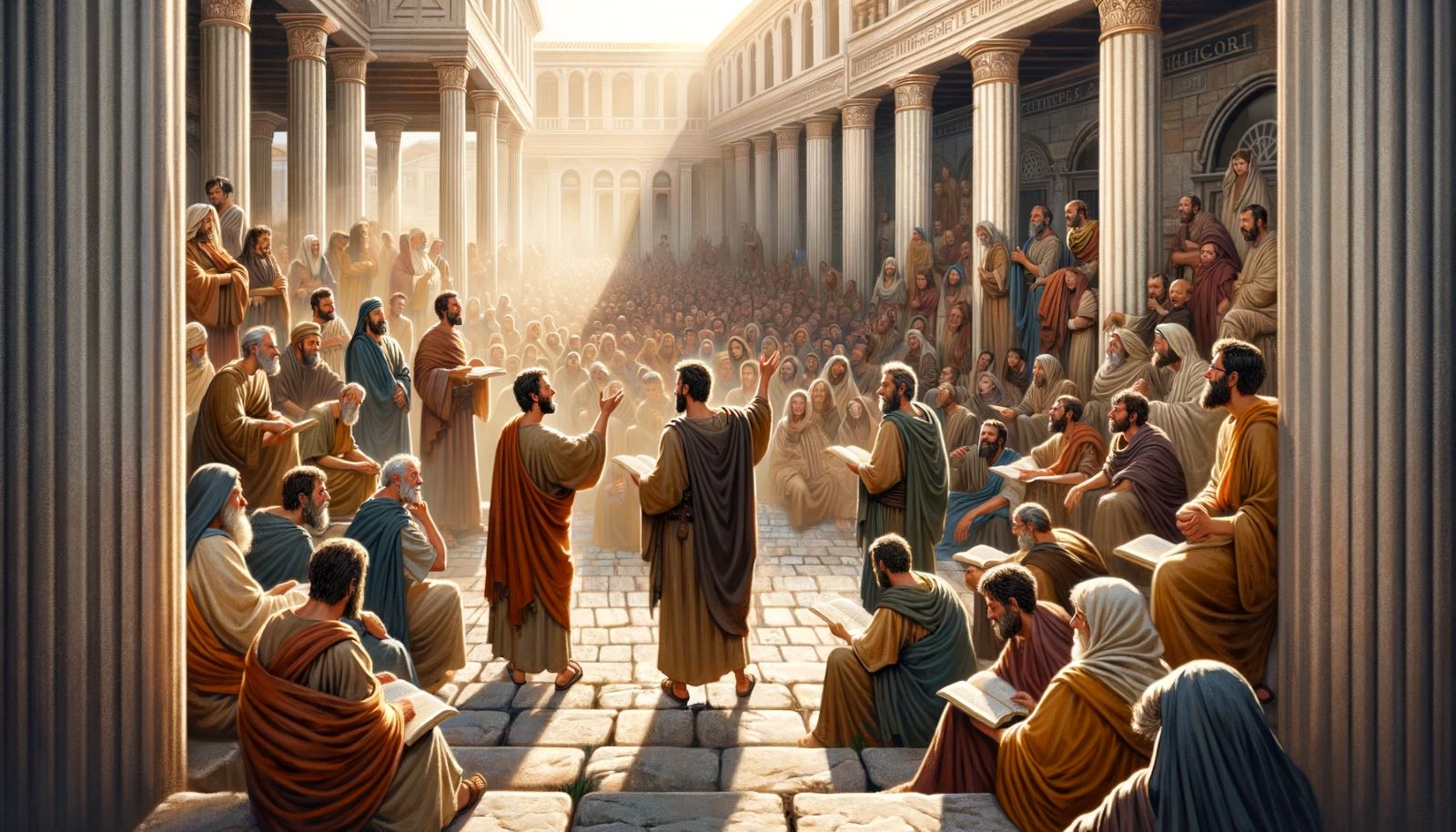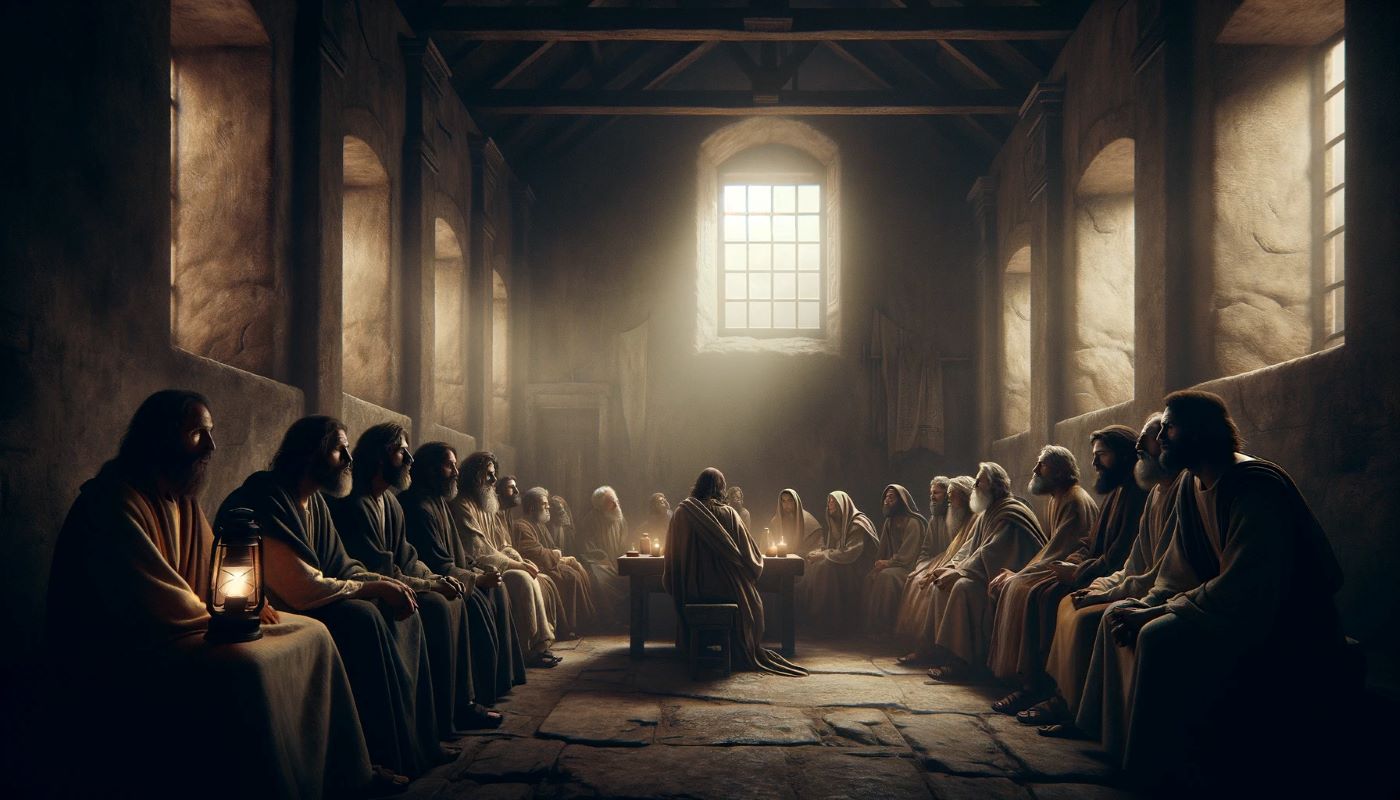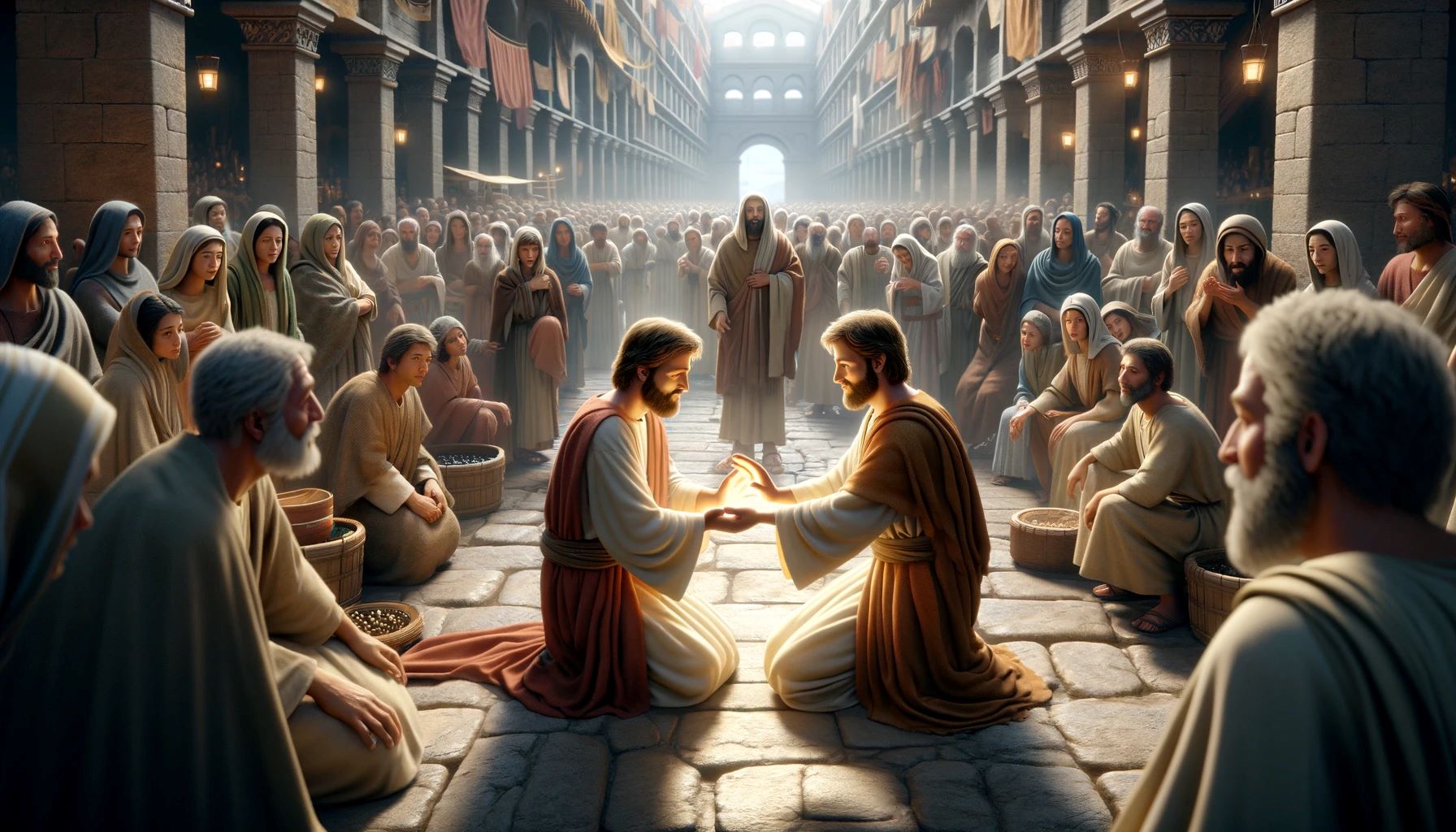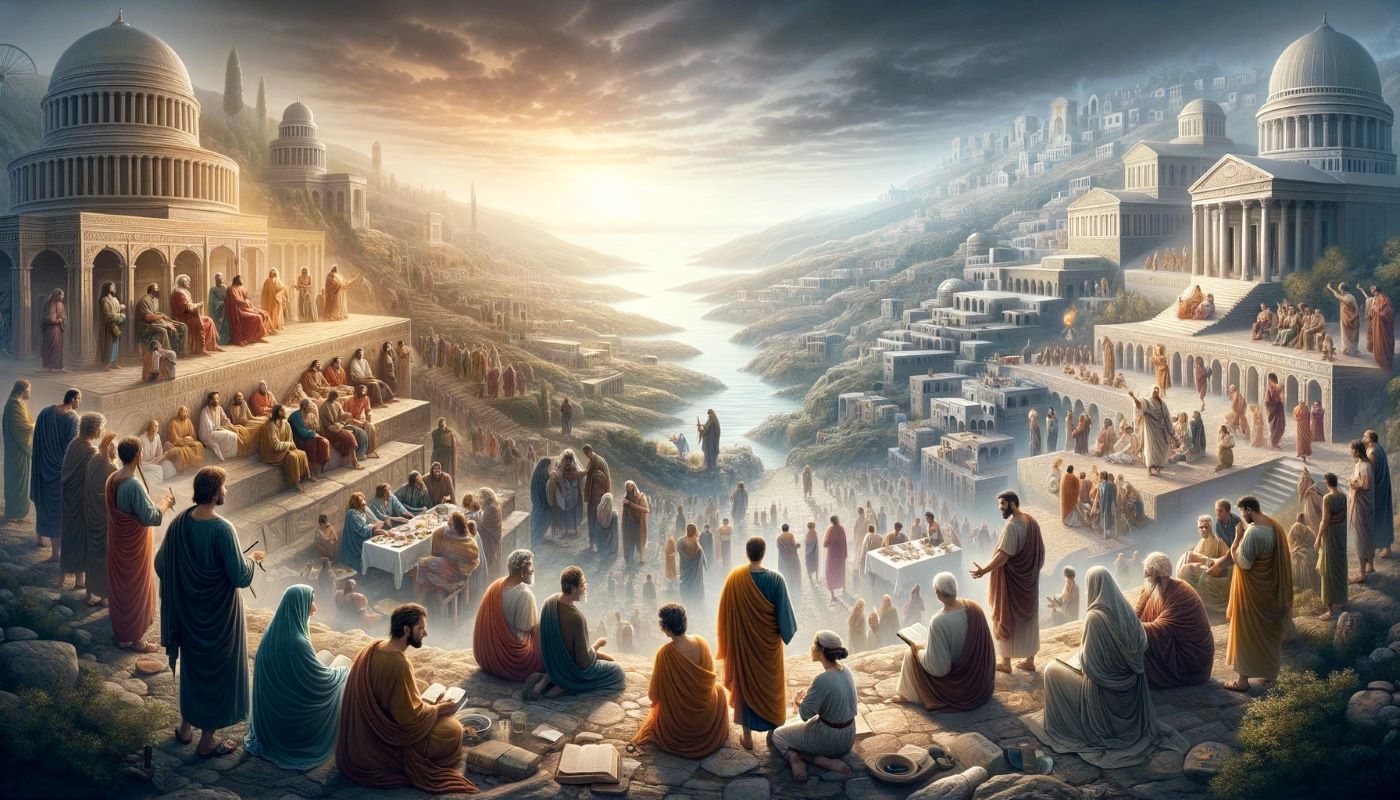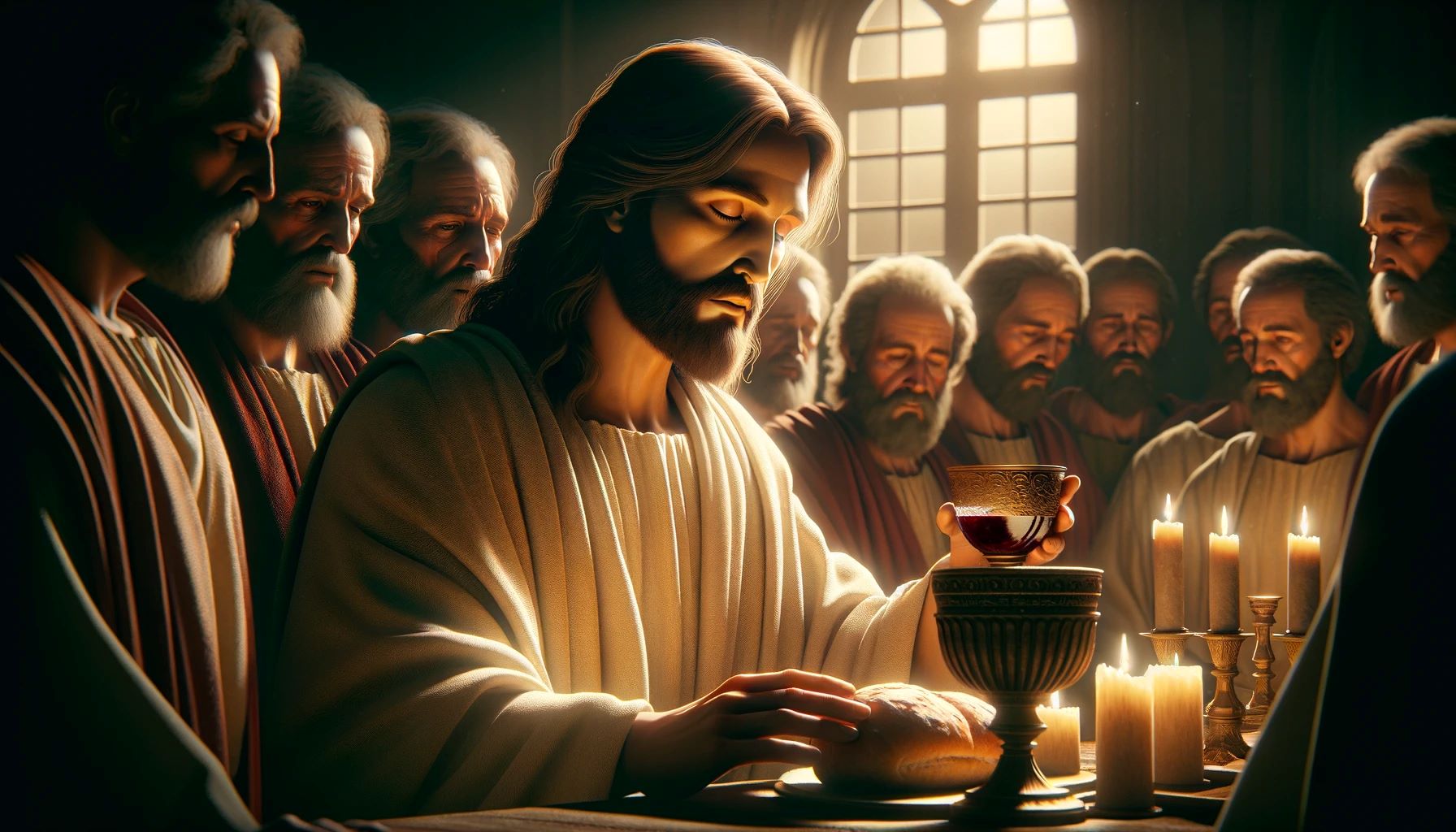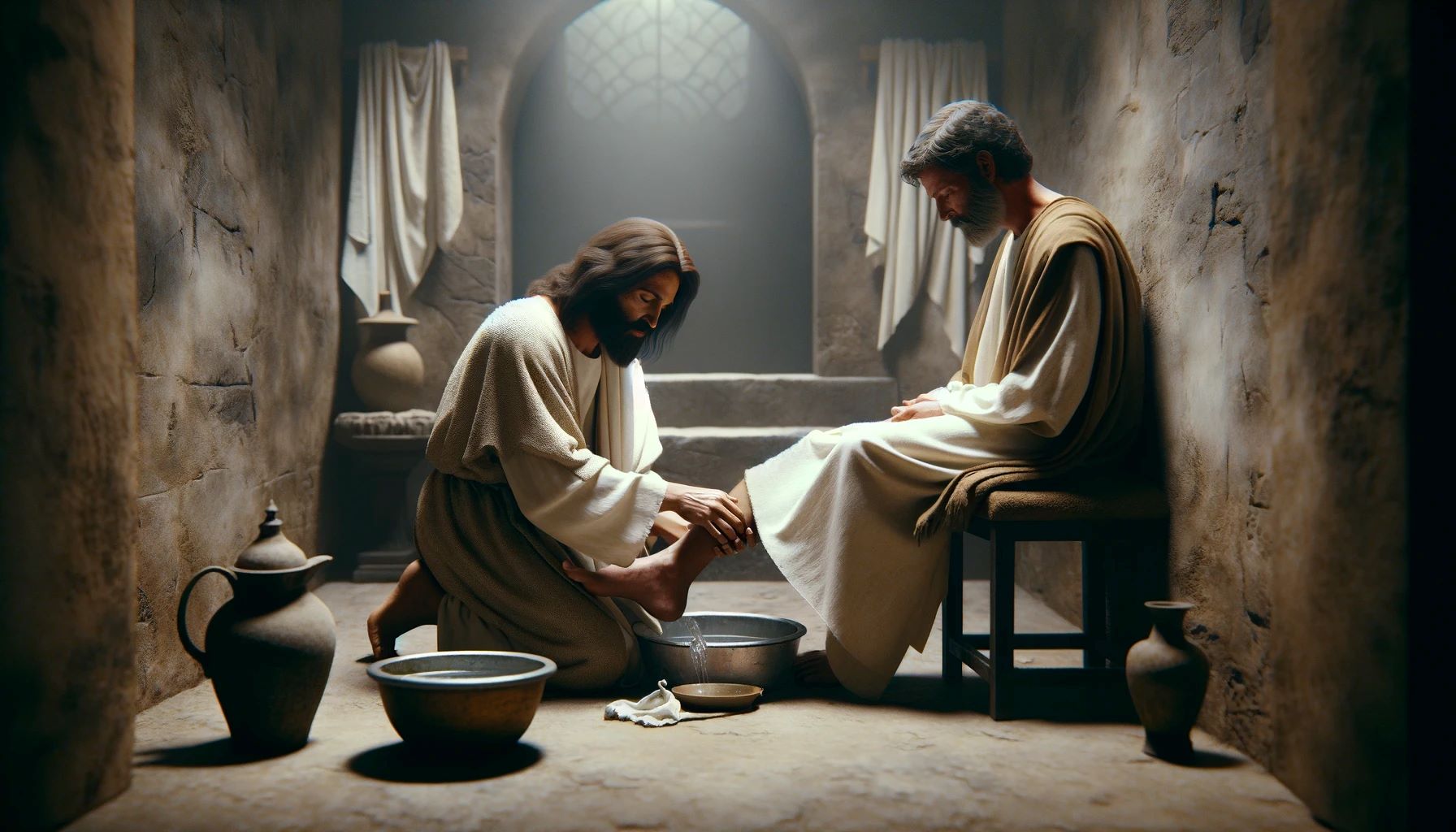Home>Bible Facts>What Did Jesus Want To Eat With The Apostles
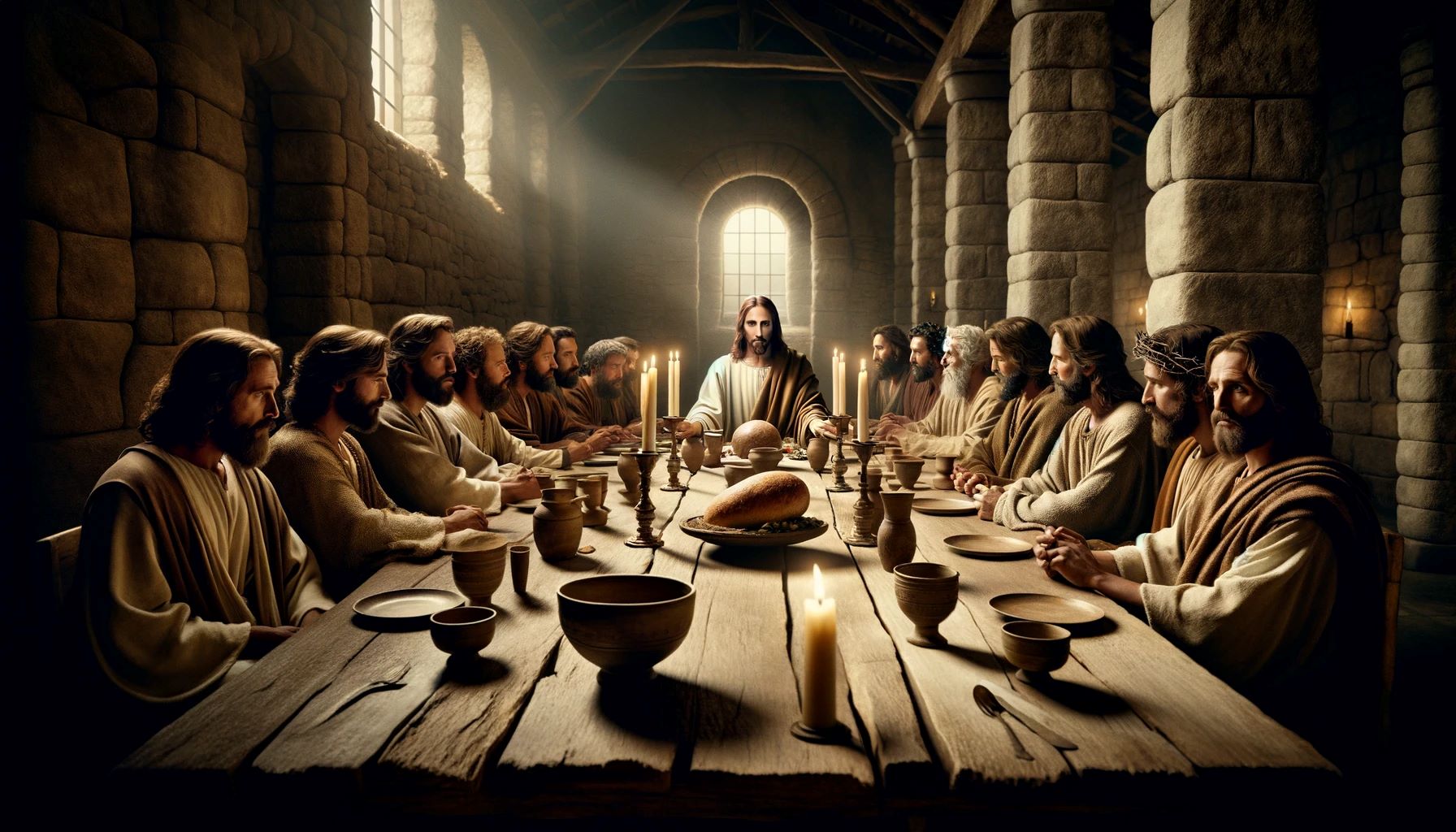

Bible Facts
What Did Jesus Want To Eat With The Apostles
Published: February 22, 2024
Jason DeRose, Managing Editor at Christian.net, uses his expertise in religion and journalism to deepen understanding of faith's societal impacts. His editorial leadership, coupled with a strong academic background, enriches the platform’s diverse content, earning him recognition in both journalism and religious circles.
Discover fascinating Bible facts about what Jesus wanted to eat with the apostles. Explore the significance of this meal and its spiritual implications. Uncover the deeper meaning behind this significant event in biblical history.
(Many of the links in this article redirect to a specific reviewed product. Your purchase of these products through affiliate links helps to generate commission for Christian.net, at no extra cost. Learn more)
Table of Contents
Introduction
The act of sharing a meal has always held profound significance in human history. It is a time-honored tradition that fosters camaraderie, strengthens bonds, and provides nourishment for the body and soul. In the case of Jesus and his apostles, the act of dining together transcended mere sustenance; it became a pivotal moment that would reverberate through the ages.
The meal shared by Jesus and his apostles has been immortalized in the annals of history as the Last Supper. This iconic event, which took place on the eve of Jesus' crucifixion, holds immense spiritual and symbolic importance in Christian theology. It was during this poignant gathering that Jesus imparted profound teachings, revealed the impending betrayal, and instituted the sacrament of communion.
As we delve into the significance of this sacred meal, we are invited to explore the deeper layers of its meaning and the intentions behind Jesus' desire to partake in this communal feast. The Last Supper was not merely a customary gathering for sustenance; rather, it was a transformative moment that would forever alter the course of human history.
In the subsequent sections, we will embark on a journey to unravel the profound symbolism and spiritual significance of the Last Supper, shedding light on the intricate details of the Passover meal, the symbolism of the bread and wine, and the underlying intentions that underscored Jesus' actions during this momentous occasion. Through this exploration, we aim to gain a deeper understanding of the spiritual and theological implications of this extraordinary event.
Read more: What Foods Did The Apostles Eat?
The Last Supper
The Last Supper stands as a pivotal moment in the life and ministry of Jesus Christ. It was a poignant and transformative gathering that took place on the eve of Jesus' crucifixion, marking the culmination of his earthly ministry. This sacred event, immortalized in the annals of history and art, holds profound significance in Christian theology and has been the subject of contemplation, artistic interpretation, and theological discourse for centuries.
The Last Supper took place in an upper room in Jerusalem, where Jesus and his twelve apostles gathered to partake in a communal meal. It was during this intimate and solemn occasion that Jesus imparted profound teachings, revealed the impending betrayal by one of his disciples, and instituted the sacrament of communion, thereby laying the foundation for a central ritual in Christian worship.
The atmosphere in the upper room was charged with emotion and anticipation, as Jesus, fully aware of the events that would soon unfold, sought to impart crucial messages to his beloved disciples. It was during this gathering that Jesus uttered the prophetic words, "One of you will betray me," signifying the imminent betrayal by Judas Iscariot, one of the twelve apostles.
Amidst the solemnity of the occasion, Jesus took bread, blessed it, and broke it, symbolizing his body that would be broken for the redemption of humanity. He then took the cup of wine, gave thanks, and shared it with his disciples, symbolizing the shedding of his blood for the forgiveness of sins. This act of sharing bread and wine would later become the central ritual of communion, signifying the spiritual nourishment and unity of believers with Christ and with one another.
The Last Supper was not merely a customary meal shared among friends; it was a profound and symbolic moment that foreshadowed the sacrificial death of Jesus on the cross. Through the act of sharing bread and wine, Jesus conveyed profound spiritual truths, emphasizing the significance of his impending sacrifice and the establishment of a new covenant between God and humanity.
As we reflect on the Last Supper, we are invited to contemplate the depth of Jesus' love and the selflessness of his sacrifice. This sacred gathering serves as a poignant reminder of the redemptive grace and the unbreakable bond between Christ and his followers, transcending time and space to resonate with believers across generations.
The Last Supper stands as a testament to the enduring legacy of Jesus' teachings and the profound impact of his sacrificial love, inspiring believers to partake in communion as a tangible expression of their faith and unity with Christ.
The Passover Meal
The Last Supper, a momentous event in the life of Jesus Christ, was intricately intertwined with the rich tapestry of Jewish tradition, particularly the observance of the Passover meal. The Passover, known as Pesach in Hebrew, is a significant festival commemorating the liberation of the Israelites from slavery in ancient Egypt. This sacred observance holds profound spiritual and historical significance, and its elements were woven into the fabric of the Last Supper, infusing the gathering with layers of symbolism and meaning.
The Passover meal, steeped in tradition and ritual, is marked by the partaking of symbolic foods and the retelling of the Exodus narrative. The meal is a poignant reenactment of the Israelites' deliverance from bondage, serving as a powerful reminder of God's faithfulness and redemptive power. Central to the Passover observance is the consumption of unleavened bread, known as matzah, which symbolizes the haste with which the Israelites departed from Egypt, leaving no time for their bread to rise.
Additionally, the Passover meal features the partaking of bitter herbs, signifying the bitterness of slavery, and the consumption of a lamb, symbolizing the sacrificial offering made during the original Passover in Egypt. The ritualistic elements of the Passover meal are laden with profound symbolism, serving as tangible reminders of God's deliverance and the enduring covenant between God and the people of Israel.
Against this backdrop of sacred tradition, Jesus and his apostles gathered to partake in the Passover meal, infusing the Last Supper with the rich symbolism and spiritual resonance of this ancient observance. As Jesus shared the unleavened bread and the cup of wine with his disciples, he imbued these elements with new significance, pointing to his impending sacrifice and the establishment of a new covenant through his own body and blood.
The Passover meal, with its deep-rooted symbolism and historical significance, provided the backdrop for the transformative events of the Last Supper. Through the incorporation of these timeless elements, Jesus infused the gathering with layers of meaning, bridging the ancient traditions of the Passover with the dawning of a new era marked by his redemptive sacrifice.
In the subsequent sections, we will delve deeper into the symbolism of the bread and wine, unraveling their profound significance in the context of the Last Supper and the spiritual truths they embody.
The Bread and Wine
At the heart of the Last Supper, the act of sharing bread and wine held profound significance, transcending the realm of mere sustenance to embody profound spiritual truths. As Jesus took the unleavened bread, blessed it, and broke it, he imbued this simple element with profound symbolism, signifying his imminent sacrifice and the redemptive purpose that would unfold in the coming hours. The unleavened bread, a central component of the Passover meal, held deep-rooted significance, representing the haste with which the Israelites departed from Egypt, and now, it took on new meaning as a symbol of Jesus' sinless body, which would be broken for the salvation of humanity.
Likewise, the cup of wine, an integral part of the Passover observance, became a vessel through which Jesus conveyed the impending shedding of his blood for the forgiveness of sins. As he shared the cup with his disciples, he ushered in a new covenant, one marked by grace and redemption, transcending the confines of the traditional Passover ritual to inaugurate a profound spiritual reality. The act of sharing the bread and wine was not merely a customary gesture; it was a transformative moment that laid the foundation for the sacrament of communion, symbolizing the spiritual nourishment and unity of believers with Christ and with one another.
The symbolism of the bread and wine, infused with profound spiritual significance, serves as a poignant reminder of Jesus' sacrificial love and the redemptive grace extended to humanity. Through these elemental symbols, Jesus conveyed the essence of his mission, encapsulating the profound truth that his body would be broken, and his blood would be shed for the salvation of humanity. The act of partaking in the bread and wine, as instituted by Jesus during the Last Supper, continues to resonate with believers, serving as a tangible expression of their faith and unity with Christ, and a poignant reminder of the enduring legacy of Jesus' sacrificial love.
As we contemplate the symbolism of the bread and wine, we are invited to delve into the depths of Jesus' selfless sacrifice and the profound spiritual truths encapsulated in these elemental symbols. The act of sharing bread and wine during the Last Supper transcends the boundaries of time and space, serving as a timeless testament to the redemptive grace and unbreakable bond between Christ and his followers.
The Symbolism of the Meal
The Last Supper, a momentous event in the life of Jesus Christ, was imbued with profound symbolism, transcending the realm of a customary meal to embody transformative spiritual truths. At the heart of this sacred gathering lay a tapestry of symbolism, intricately woven into the elements of the Passover meal and the act of sharing bread and wine. These symbols, laden with profound significance, served as tangible expressions of Jesus' impending sacrifice and the establishment of a new covenant between God and humanity.
The act of sharing the Passover meal with his apostles allowed Jesus to infuse the gathering with layers of meaning, bridging the ancient traditions of the Passover with the dawning of a new era marked by his redemptive sacrifice. The unleavened bread, central to the Passover observance, took on new significance as a symbol of Jesus' sinless body, which would be broken for the salvation of humanity. As Jesus blessed the bread and broke it, he conveyed the imminent sacrifice that would unfold in the coming hours, laying the foundation for the sacrament of communion and symbolizing the spiritual nourishment and unity of believers with Christ and with one another.
Similarly, the cup of wine, an integral part of the Passover observance, became a vessel through which Jesus conveyed the impending shedding of his blood for the forgiveness of sins. As he shared the cup with his disciples, he ushered in a new covenant, one marked by grace and redemption, transcending the confines of the traditional Passover ritual to inaugurate a profound spiritual reality. The act of partaking in the bread and wine, as instituted by Jesus during the Last Supper, continues to resonate with believers, serving as a tangible expression of their faith and unity with Christ and a poignant reminder of the enduring legacy of Jesus' sacrificial love.
The Last Supper, with its rich symbolism and spiritual resonance, stands as a testament to the enduring legacy of Jesus' teachings and the profound impact of his sacrificial love. Through the symbolism of the meal, Jesus conveyed the essence of his mission, encapsulating the profound truth that his body would be broken, and his blood would be shed for the salvation of humanity. This sacred gathering serves as a poignant reminder of the redemptive grace and the unbreakable bond between Christ and his followers, transcending time and space to resonate with believers across generations.
Read more: What Foods Did Jesus Christ Eat
Jesus' Intentions for the Meal
Jesus' intentions for the Last Supper transcended the realm of a customary gathering for sustenance; rather, it was a transformative and purposeful event that held profound spiritual significance. As Jesus gathered with his apostles in the upper room, his intentions for the meal were imbued with layers of symbolism and profound meaning, reflecting his divine mission and the impending sacrifice that would unfold in the hours to come.
At the heart of Jesus' intentions for the meal lay a profound desire to impart crucial teachings and to prepare his disciples for the events that would soon transpire. Aware of the impending betrayal by one of his own, Jesus sought to convey profound spiritual truths and to lay the foundation for the sacrament of communion, which would serve as a lasting memorial of his sacrificial love.
Through the act of sharing the Passover meal, Jesus infused the gathering with layers of symbolism, bridging the ancient traditions of the Passover with the dawning of a new era marked by his redemptive sacrifice. The elements of the meal, including the unleavened bread and the cup of wine, served as tangible expressions of Jesus' impending sacrifice and the establishment of a new covenant between God and humanity.
Furthermore, Jesus' intentions for the meal encompassed the profound desire to demonstrate selfless love and to set an example of humility and servanthood. This was exemplified in his act of washing the feet of his disciples, a gesture that underscored the essence of servant leadership and the call to love and serve one another.
In addition to these intentions, the Last Supper served as a poignant moment of farewell, as Jesus prepared to depart from his disciples and embark on the path that would ultimately lead to his crucifixion. It was a moment of profound significance, as Jesus sought to impart lasting lessons and to instill within his disciples the enduring legacy of his teachings and sacrificial love.
As we reflect on Jesus' intentions for the meal, we are invited to contemplate the depth of his love and the selflessness of his sacrifice. The Last Supper stands as a testament to the enduring legacy of Jesus' teachings and the profound impact of his sacrificial love, inspiring believers to partake in communion as a tangible expression of their faith and unity with Christ.
Conclusion
The Last Supper, a sacred and transformative gathering that took place on the eve of Jesus' crucifixion, stands as a testament to the enduring legacy of Jesus' teachings and the profound impact of his sacrificial love. This iconic event, immortalized in the annals of history and art, holds immense spiritual and symbolic importance in Christian theology, resonating with believers across generations.
At the heart of the Last Supper lay a tapestry of symbolism and profound spiritual truths, intricately woven into the elements of the Passover meal and the act of sharing bread and wine. These symbols, laden with deep significance, served as tangible expressions of Jesus' impending sacrifice and the establishment of a new covenant between God and humanity. The unleavened bread, symbolizing Jesus' sinless body, and the cup of wine, signifying the shedding of his blood for the forgiveness of sins, encapsulated the essence of Jesus' mission and the redemptive grace extended to humanity.
Jesus' intentions for the meal transcended mere sustenance; they encompassed a profound desire to impart crucial teachings, prepare his disciples for the events to come, and set an example of humility and servanthood. The act of sharing the Passover meal allowed Jesus to infuse the gathering with layers of meaning, bridging the ancient traditions of the Passover with the dawning of a new era marked by his redemptive sacrifice.
As we reflect on the Last Supper, we are invited to contemplate the depth of Jesus' love and the selflessness of his sacrifice. The sacred gathering serves as a poignant reminder of the redemptive grace and the unbreakable bond between Christ and his followers, inspiring believers to partake in communion as a tangible expression of their faith and unity with Christ.
The Last Supper, with its rich symbolism and spiritual resonance, continues to resonate with believers, serving as a timeless testament to the enduring legacy of Jesus' sacrificial love. It stands as a pivotal moment that would forever alter the course of human history, leaving an indelible imprint on the hearts and minds of those who seek to understand the depth of Jesus' teachings and the profound significance of his redemptive mission.
